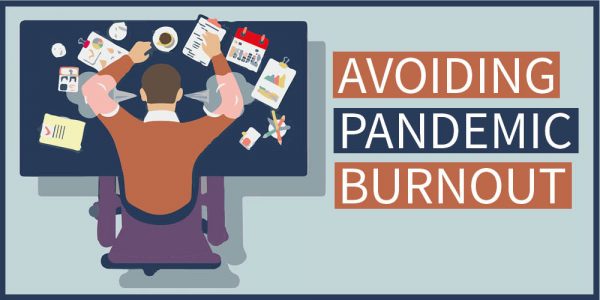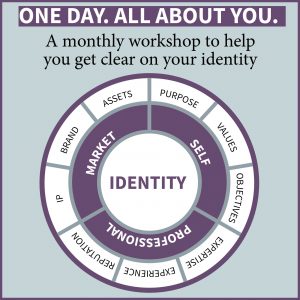As part of our role running Hivemind Warren Knight and I speak with a huge amount of solopreneurs & business people every week. Last week over lunch we were discussing a very common trend we have spotted in the people we meet, where they feel exhausted & lacking motivation. We are calling in Pandemic Burnout.
I did a Fireside on a topic related to this one recently aswell. The link is below!
People are comparing the pre-covid version of themselves, who was enthusiastic, creative and energetic to the fatigued version they see in the mirror (This isn’t a particularly useful thing to do unless of course it motivates change) and they just don’t recognise themselves. Does this ring true to you? Even if not you… can you see it in colleagues or clients?
Before you start to beat yourself up about this do remember that you are not alone… nearly everyone is suffering from mental fatigue right now… finding it difficult to focus on a task because we are simply emotionally exhausted. And it’s not without good reason, the pandemic has shown us how little control we have over our lives day-to-day. We are on high alert when we are out and about, or not leaving the home and feeling isolated.
The feeling of loneliness is being talked about more and more… even by those living with families. Losing our social lives will do this and whilst video conference solution will go some way to compensate, it’s just not the same.
Then let’s talk business, if you are in an industry or profession which has essentially been in a coma for the last year plus, you can add financial worries on top of everything else. Even if your profession wasn’t directly affected, you were probably indirectly impacted as people (Customers) tighten their belts to ride the storm.
I met with a friend recently who had not initially been impacted by the pandemic, all through the lockdowns he was working until it suddenly hit him… there was nothing in his pipeline. You see up until then he was delivering on the pipeline he had secured pre-pandemic. His main methods of prospecting were networking & speaking on stage, and these events had simply come to a halt. This is true for many we speak with… if they didn’t evolve their prospecting, they have no pipeline.
Apathy is rife right now. People seem to lack interest or enthusiasm about everything. You may have an amazing proposition and deliver fantastic value for money… but that means nothing if you can’t even get people attention, let alone motivate them to take action. So what do we do about it?
Well first I believe we need to accept this is really how we are feeling, in order to deal with it. The rest of this article is simply to help you identify if you are personally mentally exhausted, and a few practical, common sense ideas on how to combat it… I will be talking about the business apathy side of things on Thursday before the Fireside Chat discussion, and will summarise what we learn from each other in another article next week.
You may be mentally exhausted if…
You’re less efficient
Of course we all have days when finishing a task would take us 30 mins, at the most! Then others when it’s a three-hour ordeal, requiring coffee… many many cups of coffee. Does this sound familiar? You sit at your desk at 9 a.m., surf the internet for a bit, check your social media, and before you know it, it’s mid-day and you haven’t achieved anything?
Everyone experiences dips in productivity, but if that is your new normal lately, you may well be suffering from mental exhaustion.
You are procrastinating
There are people thrive by putting everything off until the very last minute. However, if this isn’t your normal modus operandi and you currently find yourself procrastinating frequently, you could be experiencing burnout. When we continuously feel high emotions or stress, it is hard for us to simultaneously feel energetic, motivated, or invested getting stuff done, instead we can feel unfocused and exhausted, this can also impact our outlook to be more pessimistic.
Your sleep and appetite are suffering
In addition to feeling unfocussed, we can neglect to care for ourselves when experiencing mental fatigue. This may result in shifts in our sleeping patterns and our eating habits, and this usually manifest in the extremes. With regards to diet you may be overeating or experiencing a lack of appetite. For sleep, you may be struggling with insomnia because your mind won’t switch off, or conversely, all you want to do is stay in bed all day.
You are easily irritated and feel less compassion for others
It is highly likely that your emotional tolerance could be waning with others. Do you find yourself less patient with family, friends and colleagues right now? This is a key indicator of mental fatigue, since serving the needs of others requires energy and consideration.
When you lack the motivation to perform routine tasks, giving more to those around you feels impossible. This is often referred to as Compassion fatigue, a condition characterized by emotional and physical exhaustion leading to a diminished ability to empathize or feel compassion for others. It feels like you are numb and disconnected, not because you a bad person, you just need more self-care periods within your week.
If any of the above rings true for you, then here are a few suggestions to help… and by the way, none of it is ‘revolutionary’, it is all common sense. Chances are you already know you need to do them… the hardest part is the discipline to take care of ourself. It takes effort.
6 Strategies to Combat Mental Exhaustion
1. Exercise for at least 30 minutes daily
There’s simply is no other way to get the endorphins produced by physical activity. It can feel like an absolute chore to get started, but you will be glad you did as it will kickstart the good hormones and improve your energy levels. 30 minutes of cardio around the time when you feel mentally exhausted will help reinvigorate you and change your state of mind.
2. Break the cycle and engage your senses.
When we feel mentally exhausted, we are often trapped in a cycle of stress, worrying and entertaining anxious thoughts. We catastrophize about the future and dwell on negative thoughts. We can relieve this pressure by being present in the now, focusing on your five senses: What do you see, hear, feel, taste, and smell?
Take time to look around, splash some water on your face, listen to some music, phone a friend. By reconnecting to the world around you, you will feel more grounded as it will remind you there is more to life than our worries, we just need to be more intentional and take the time.
3. Adjust your diet, even if just for a few days
The advice for healthful eating also applies to keeping your energy level high: eating a balanced diet that includes a variety of unrefined carbohydrates, proteins, and fats, with an emphasis on vegetables, whole grains, and healthy oils will ensure that you get the vitamins and minerals you need. Consider seeing a nutritionist to find the perfect plan for you to help prevent fatigue.
4. Stay hydrated!
Research suggests that losing as little as 1% of your body weight in fluid may reduce mental performance, as well as potentially inducing fatigue and headache. This mild level of dehydration can easily occur over the course of a normal day’s activities, which highlights how important drinking little and often is for your health. Being dehydrated can also affect our mood and mental well-being, with energy levels, cognition and emotions all potentially affected.
So drink more water, set regular alarms to remind you to pour a glass… you will feel better for it. A great idea from my son is to buy a two litre water bottle, fill it the night before and put it in the fridge. You can even add some fruit to flavour, or my personal favourite… chopped cucumber.
5. Try a little mindfulness and breathe
Similar to engaging your senses (point 2 above), it can also really help to practice breathing techniques which lower our heart rate, relieve tension and clear our mind. Explore meditation and mindfulness techniques to create a little calm throughout your day, but particularly when you are feeling anxiety.
The simple breathing technique I use (Thanks James Granstrom) is to just focus equally on the length of inhalation and exhalation. I simply breathe in for five seconds, hold for five seconds, and exhale for five seconds. I repeat as often as I need to, but even a couple of minutes can have an impact. The simple act of focussing on the breathing, distracts me from my sometimes overwhelming thoughts.
6. Reduce the mental noise
What do I mean by this… we all have a tonne of thoughts buzzing round our heads and having too much information to process is part of the cause of mental fatigue. On top of our usual everyday tasks, we currently have a whole new level of data to contend with.
To stop myself obsessing about what needs to be done I write good old fashioned lists to get these tasks out of my head, but safe in the knowledge they won’t be forgotten as I have recorded them. There are several good apps for this too like Evernote for example with visual cues, deadlines and prioritisation. For me I love the dopamine hit the brain gets. I am even sad enough to occasionally write down an already completed task that I forgot to put on my list, just so I can feel the satisfaction of ticking it off. Don’t judge me ?
Lastly don’t forget to reward yourself when you complete a big task. This is a tip I got from one of our members, Productivity expert Daryl Woodhouse. My go to treat is salted liquorice which I keep in my office draw, but you could also just change the scene by going for a quick walk, or put the kettle on.
There you have it, 6 simple tips to combat pandemic burnout and regain your mojo. Even if the above doesn’t feel like you, you may have a friend or colleague that could benefit, so please do share.




